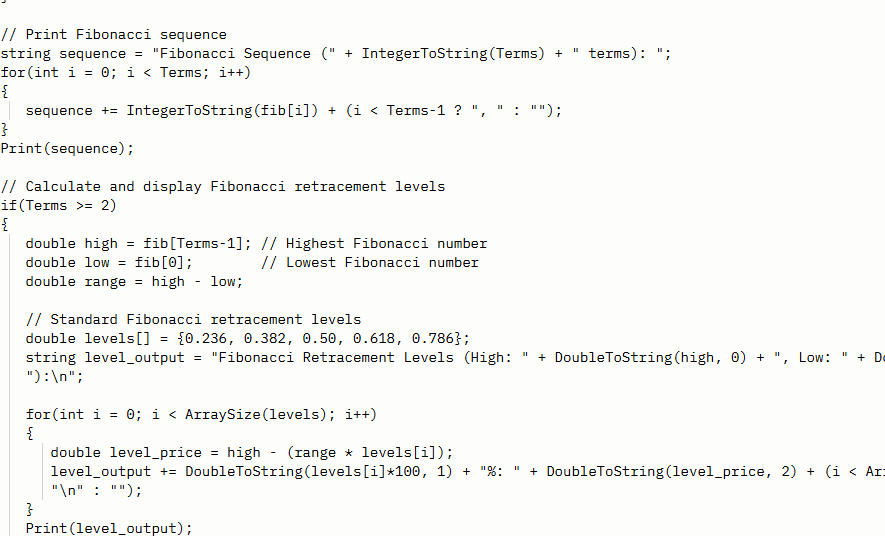In a move set to empower algorithmic traders and developers, MetaQuotes has rolled out MetaTrader 5 (MT5) platform build 5260, featuring significant enhancements to its Algo Forge environment and pivotal changes to the MQL5 programming language. Released on September 5, this update addresses user pain points while introducing tools for more precise and efficient coding, signaling MetaQuotes’ commitment to evolving its flagship trading platform amid growing demand for automated strategies.
At the heart of the update is Algo Forge, MT5’s integrated Git-based version control system, which now boasts faster operations and a new user guide. Developers can expect over 40% performance gains in SHA-1 hash calculations during bulk Git tasks, streamlining workflows for large projects. Additionally, the system now smartly ignores files where only the modification timestamp has changed, reducing false positives and minimizing conflicts with remote repositories. This refinement is particularly useful for teams collaborating on complex expert advisors (EAs) or indicators.
The newly published Algo Forge User Guide demystifies Git’s benefits without overwhelming beginners. It emphasizes reliable version history, branching for experimentation, and seamless team collaboration. A standout feature highlighted is the one-click forking of projects on forge.mql5.io. Users can clone another developer’s project, including its full commit history and branches, directly into MetaEditor via the “Git Clone” command. This fosters an open-source ethos, allowing traders to learn from peers and build upon existing codebases. As algorithmic trading surges— with global markets seeing a 15% rise in automated volumes last year, per industry reports— such tools could democratize access to sophisticated strategies.
Shifting to the MQL5 language, the update introduces advanced linear algebra capabilities through new OpenBLAS and Eigen methods. Five fresh functions in the Matrix Balance section enable matrix balancing, eigenvector transformations, and reductions to Hessenberg form, drawing from proven LAPACK algorithms for high reliability. These are ideal for developers tackling eigenvalue problems in financial modeling, such as volatility forecasting or portfolio optimization, where numerical stability is crucial.
Complementing this, two new Eigen Values methods compute eigenvectors post-Schur decomposition, rounding out MQL5’s toolkit for spectral analysis. One offers pinpoint accuracy, while the other prioritizes speed with a block-based approach, giving coders flexibility based on their needs.
A major shift comes in MQL5’s inheritance rules, adopting a “method hiding” paradigm to enhance code predictability. Previously, derived classes inherited all method overloads from base classes, potentially leading to ambiguous calls. Now, if a derived class defines a method with the same name, it hides the base versions entirely. To access hidden methods, developers must explicitly scope them (e.g., using “Base::Method”). This prevents unintended overloads but may require code adjustments; the compiler issues warnings for mismatched calls, like implicitly converting numbers to strings.
To mitigate this, MetaQuotes added the “using” operator, which pulls base method overloads into the derived class’s scope. This restores accessibility while allowing visibility tweaks— even promoting protected methods to public. The logic here promotes cleaner hierarchies: base methods remain hidden by default for safety, but “using” enables selective inclusion, empowering developers to craft more maintainable code without surprises.
On the terminal side, build 5260 fixes display issues in symbol specifications, particularly for floating leverage and negative-price symbols. Order books now sort correctly across price signs, ensuring accurate views for exotic instruments like futures with inverted pricing. A new section in the user guide explains how the Strategy Tester handles historical data, including automatic start-date shifts for sufficient “pre-start buffers.” This transparency helps users avoid common pitfalls in backtesting, where incomplete history can skew results.
Interface improvements include Irish language support and updated translations, broadening MT5’s global appeal. The web terminal mirrors many fixes, adding Contest account visuals (in blue) and refining margin calculations, order placements, and UI elements like quick-close buttons.
Overall, this build underscores MetaQuotes’ focus on developer empowerment. “These changes make MQL5 more robust for advanced computations while simplifying collaboration in Algo Forge,” noted a MetaQuotes spokesperson in the release notes. With MT5 powering millions of traders worldwide, updates like this could accelerate innovation in fintech, from AI-driven EAs to risk management tools.
As markets evolve, expect more refinements— but for now, build 5260 positions MT5 as a frontrunner in the algo trading arena.
